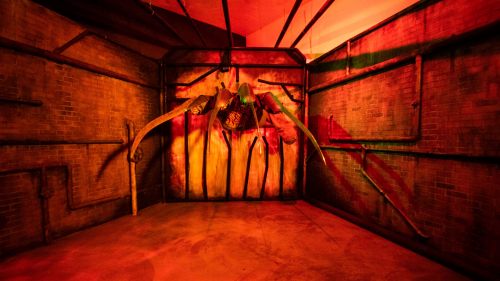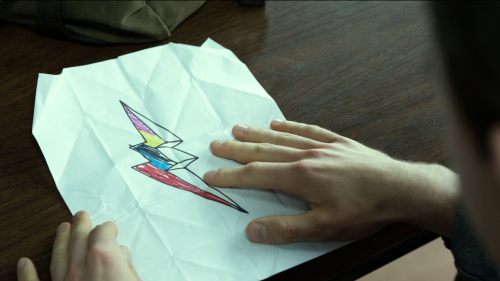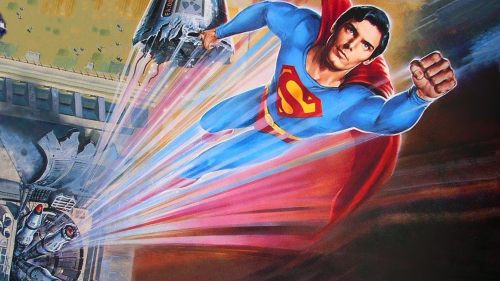Say Something Nice: FREDDY’S DEAD: THE FINAL NIGHTMARE
It really doesn't get much worse than Freddy's Dead: The Final Nightmare, regardless of whether you're looking purely at the Nightmare on Elm Street franchise, the horror genre as a whole, or the entirety of cinema. This is a career low for pretty much everyone involved, spinning the tires on a series of films that had already worn out its welcome and had nowhere to go creatively but down. This is the film where Freddy Krueger's jokes are at their most cringeworthy, where the effects budget lives in the toilet, where the plot is so creatively bankrupt that it needs to retcon large portions of Freddy's backstory and power set to even make it feasible. Even the kills are really weak this time around, leaning into the gimmick of 3D to sell some pathetically tame fights.
Well, that is, except for one scene…
Alright, alright, I get it. This scene is still kinda crap. Ricky Dean Logan as Carlos overacts to the point of parody, Freddy still indulges in comic shenanigans that border on insufferable, and there's that damn whistling sound effect as Freddy drops the pins. In execution, this is a kill that leaves a lot to be desired. But take a step back and think about how this fits into the greater canon of Nightmare on Elm Street.
At his best, Freddy Krueger is a killer that preys off the subconscious of his victims, playing with the impossibilities of dream logic to manipulate the fears of his teenage prey against them. This is why Nightmare on Elm Street II and III are some of the best in the series: the kills are personally attuned to their victims, victims who are established characters with desires and anxieties that Freddy exploits. Now, Carlos isn't really enough of a character to have that sort of pathos in his kill scene, but the nest of an idea exists here that would have been inspired if it had been further explored.
Carlos uses a hearing aid, and it is through the manipulation and demonification of that assistive device that Freddy destroys him. For people with disabilities, assistive technology can in effect be an extension of their bodies, as a necessary part of their daily lives as the biological equivalents used by able-bodied people. So let's say that Freddy's Dead had laid the necessary groundwork for Carlos to be anxious about his hearing aid. Maybe it's a new disability, something he's still not entirely comfortable with and he toys with his hearing aid constantly. Or maybe it's something he is comfortable with and other characters constantly pester him about it, fostering insecurity that wouldn't otherwise be there. Regardless of how the hearing aid is set up, Carlos's death scene is actually a pretty intense examination of the fear of losing the ability to control one's senses.
As Carlos loses his hearing aid to Freddy, the sound becomes washed out, and the tension of Freddy not only being unseen but unheard starts to escalate. But it seems that Freddy isn't so much of a bastard to deprive his victim of a fighting chance, so he tosses the hearing aid back, only for the hearing aid to become organic and latch itself painfully to Carlos's head. This is body horror in the extreme, demonstrating the horror of a disabled character's body turning against them through the manipulation of a device they had invested their faith in. And, goofy as the accompanying sound effects are, the deafening reality of having auditory stimulus drive one to madness is real even for those whose ability to hear is unhampered, so the dark karmic irony of sound being the mechanism by which Freddy kills Carlos is one of the most sadistic scenarios the franchise has ever dreamed up. It's just a shame that it had to happen in this movie, in the context of this plot and with this lackluster execution. The real irony here is that in a film that feels like nails scratching across a chalkboard, the scene with actual board scratching is the most praiseworthy.



